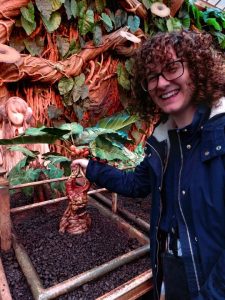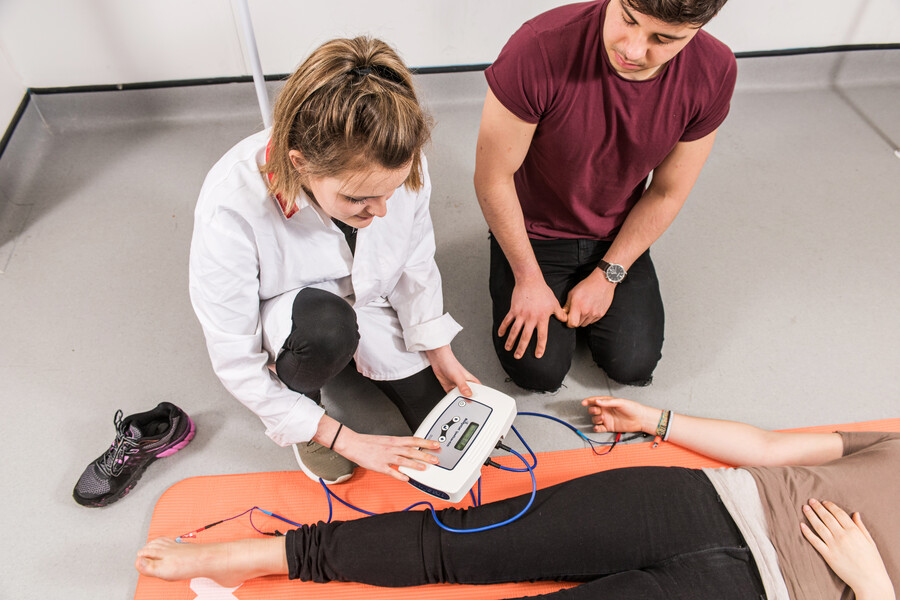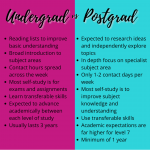 Produced by Guest blogger
Produced by Guest blogger
This is a guest blog by BU graduate Consuelo Fernández Prieto where she shares her experience on the MSc Nutrition & Behaviour course and her future career plans.
My name is Consuelo and I am a registered Dietitian and recent graduate from MSc Nutrition & Behaviour at BU.
When I decided to expand my knowledge and skills by pursuing a Master’s degree, the programme at BU instantly stood out from the rest by focusing on the complex link between nutrition and psychology and including a work-based learning experience via a short placement.
During the course, I enjoyed the extensive in-class discussions, journal clubs, seminars, and workshops. By constantly discussing topics with peers with diverse backgrounds, and receiving individualised feedback, I was able to build on my critical thinking and reflective skills. On top of that, all lecturers were very approachable, patient, and enthusiastic. They helped me find a great placement with Apetito UK, in Trowbridge, and were always on hand to provide career advice. I was indecisive about whether to pursue a PhD or gain more work experience after graduation!
 Still, heading into a postgraduate course is challenging. Balancing your workload is difficult, particularly because most of your learning and work will be done outside the lecture hours. Managing assignments, a dissertation, a placement, a part-time job and allowing room for time off can be overwhelming. Also, consider that if you are an international student, you are additionally navigating a different culture and/or language. For me, keeping a daily and simple to-do list of three attainable goals meant my days did not feel as overwhelming. I also started going on walks every time my brain wasn’t cooperating with me, as per a lecturer’s suggestion. Try and figure out a strategy early on that works for you to benefit your mental health.
Still, heading into a postgraduate course is challenging. Balancing your workload is difficult, particularly because most of your learning and work will be done outside the lecture hours. Managing assignments, a dissertation, a placement, a part-time job and allowing room for time off can be overwhelming. Also, consider that if you are an international student, you are additionally navigating a different culture and/or language. For me, keeping a daily and simple to-do list of three attainable goals meant my days did not feel as overwhelming. I also started going on walks every time my brain wasn’t cooperating with me, as per a lecturer’s suggestion. Try and figure out a strategy early on that works for you to benefit your mental health.
Overall, completing this Master’s degree at BU has allowed me to showcase my ability to work autonomously and manage large workloads, whilst keeping myself motivated. I have also gained more confidence in my ability to critically evaluate and reflect on nutrition related issues and my ability to communicate these as a team member within the workplace.
Towards the end of my masters, I decided that looking for a full-time job and gaining more work experience and specialising as a Dietitian was what I wanted to do next. I attended multiple webinars from CareersBU and used the available resources that MyCareerHub has to help studen ts find employment. I found that many qualities you gain through this programme are very sought after when applying for jobs in nutrition, but it is a competitive field. I would definitely recommend checking out these resources and attending their webinars to get a feel for what UK employers want from graduates and how the interview process works here, as it is very different to what I was used to in my home country, Chile.
ts find employment. I found that many qualities you gain through this programme are very sought after when applying for jobs in nutrition, but it is a competitive field. I would definitely recommend checking out these resources and attending their webinars to get a feel for what UK employers want from graduates and how the interview process works here, as it is very different to what I was used to in my home country, Chile.
I was lucky enough to know exactly what kind of role I wanted to go into after uni, and I will be taking on a post as a Specialist Dietitian within a Mental Health Service for Older People, promoting health and independence for people living with dementia or other mental health needs.

 My experience as an international student studying MSc Nutrition & Behaviour
My experience as an international student studying MSc Nutrition & Behaviour My undergraduate to postgraduate journey at BU
My undergraduate to postgraduate journey at BU Developing my career as a radiographer
Developing my career as a radiographer Coming to BU as an international student
Coming to BU as an international student








